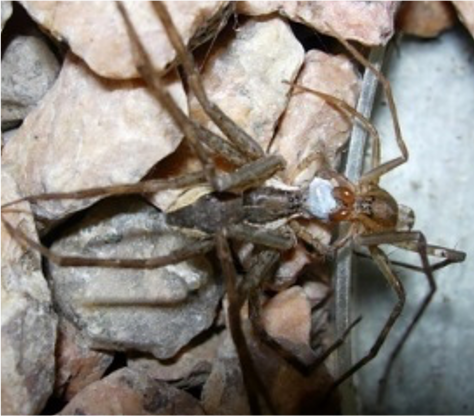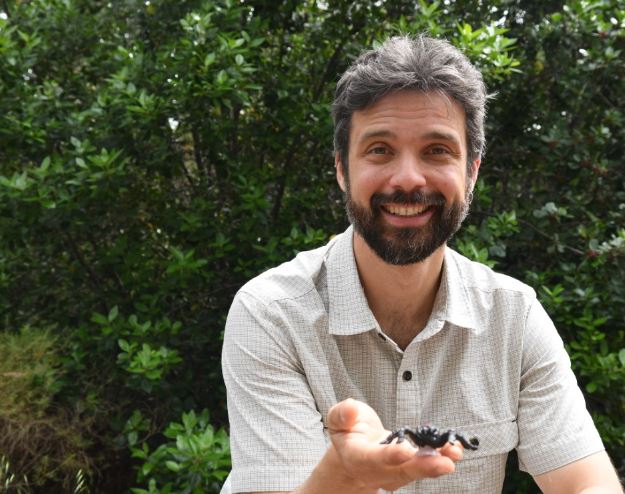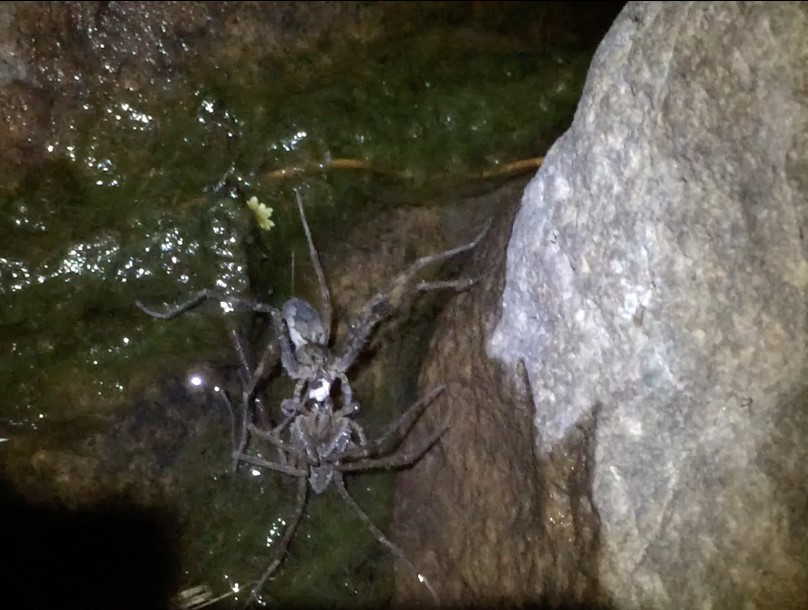
Being wary of taking gifts from strange males takes on a new meaning among a South American spider species known to woo females with silk-wrapped food parcels.
Scientists in South America and Australia have discovered that environmental stresses, such as large variations in rainfall and floods in the rivers, tend to change the mating rituals of these semi-aquatic Neotropical spiders which live in riparian habitats in Uruguay and Brazil.
The study found that during moderate to harsh lean times, gift-giving spider Paratrechalea ornata males often offer females a deceptive or worthless gift, rather than a food gift.
“Our study found this behaviour probably corresponds with periods of time when food is more difficult to find so some males might ‘cheat’ by offering fake gifts,” says evolutionary biologist Dr Maria Albo, from Uruguay’s Universidad de La República.

“While males of some spider populations offer prey to females as a way to convince them to mate, there might be less bountiful periods when males are more deceptive with their ‘nuptial’ gifts.”
When local environmental conditions are harsh, these fake parcels become more common rather than the exception and both males and females become smaller and need less food, researchers say, warning of the long-term affects of climate change on spider, insect and other organisms’ survival.
Flinders University arachnid and insect expert Dr Bruno Buzatto, a co-author of the latest study in BMC Biology, says the gift-giving spiders display contrasting behaviours to other species where the females may devour the males after mating.
“These spiders offer captured prey to females as way to convince them to mate,” he says.
 “In times of plenty, females will usually reject males if they offer fake gifts but they may eventually have to accept the gifts with no food inside when most males are forced to cheat.”
“In times of plenty, females will usually reject males if they offer fake gifts but they may eventually have to accept the gifts with no food inside when most males are forced to cheat.”
The study of P. ornata concludes the potential for worthless gits to fully take over is promoted by highly stressful environmental conditions such as low rainfall and climatic variation which can affect their riparian habitats and watercourses in South America.
In turn, this involves widespread prey shortages, female fecundity and general decline in adult spider size.
The research team has been studying the gift-giving patterns of Paratrechalea ornata, a roughly bottle cap-sized semi-aquatic spider found in Uruguay and surrounding South American countries, to gain insights in the event of future climatic and environmental changes.
The article, Stressful environments favor deceptive alternative mating tactics to become dominant (2023) by Maria J Albo, Camila Pavón-Peláez, Mauro Martínez Villar, Bruno A Buzatto and Ivanna Tomasco has been published in BMC Biology DOI: 10.1186/s12915-023-01664-5.

